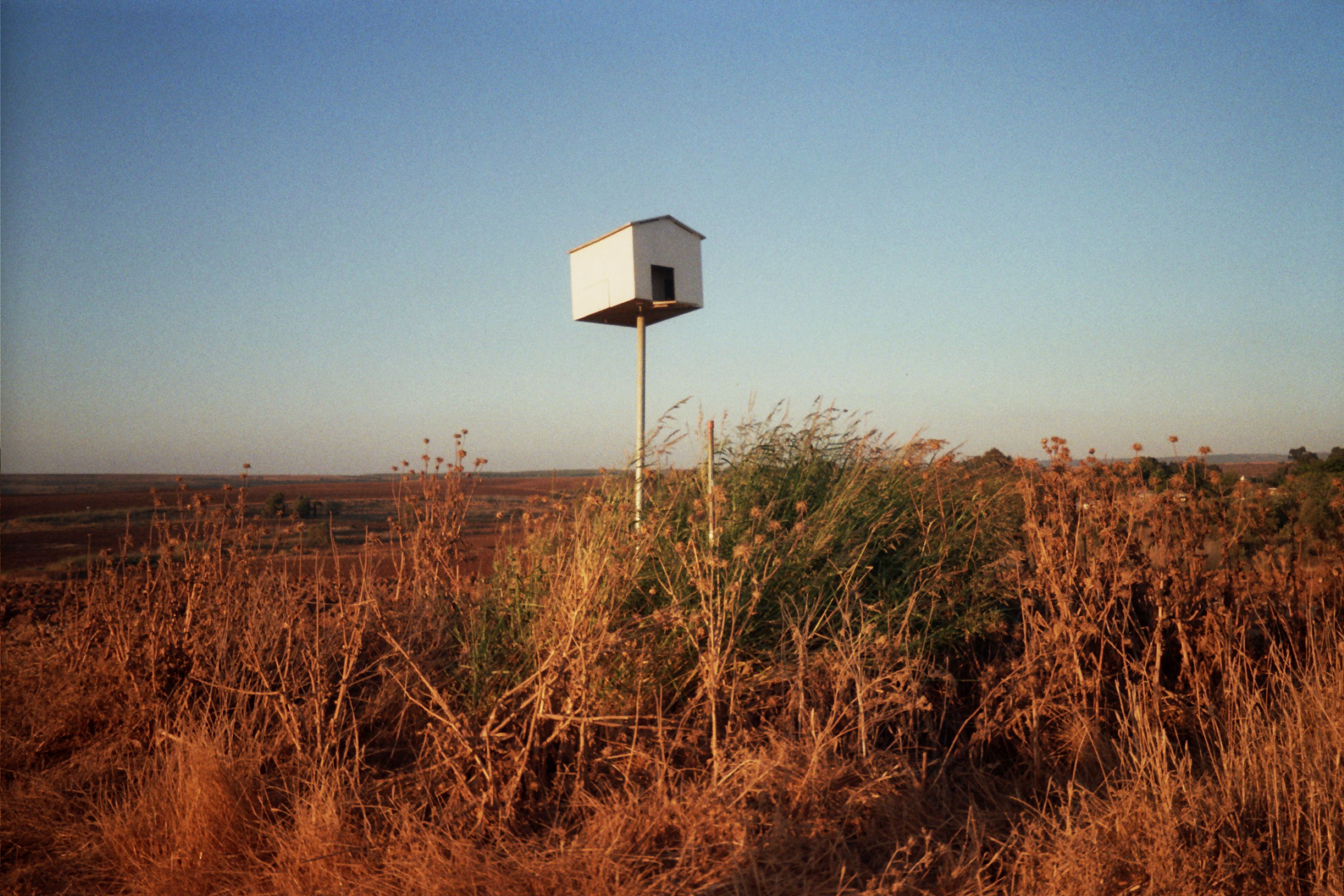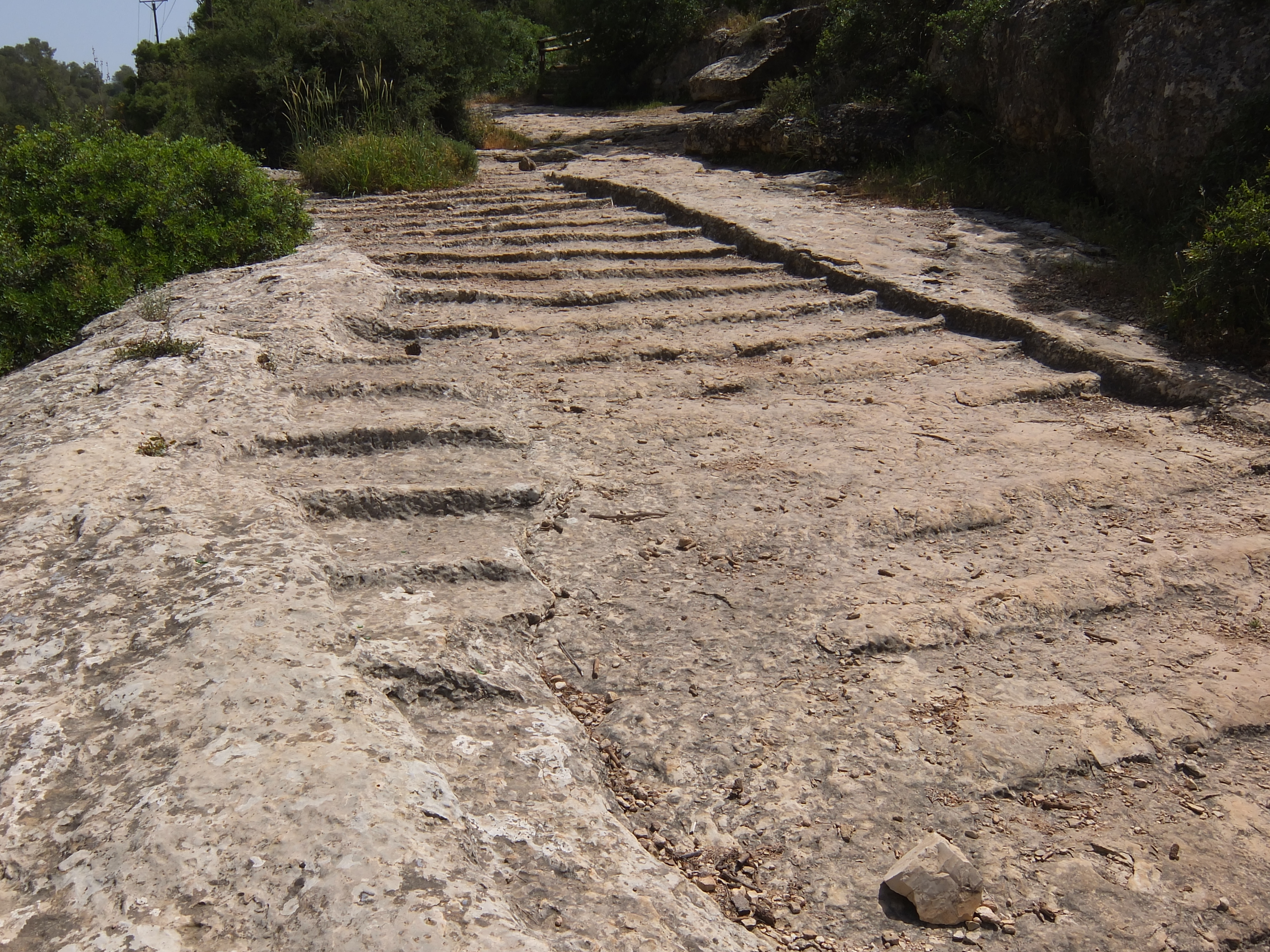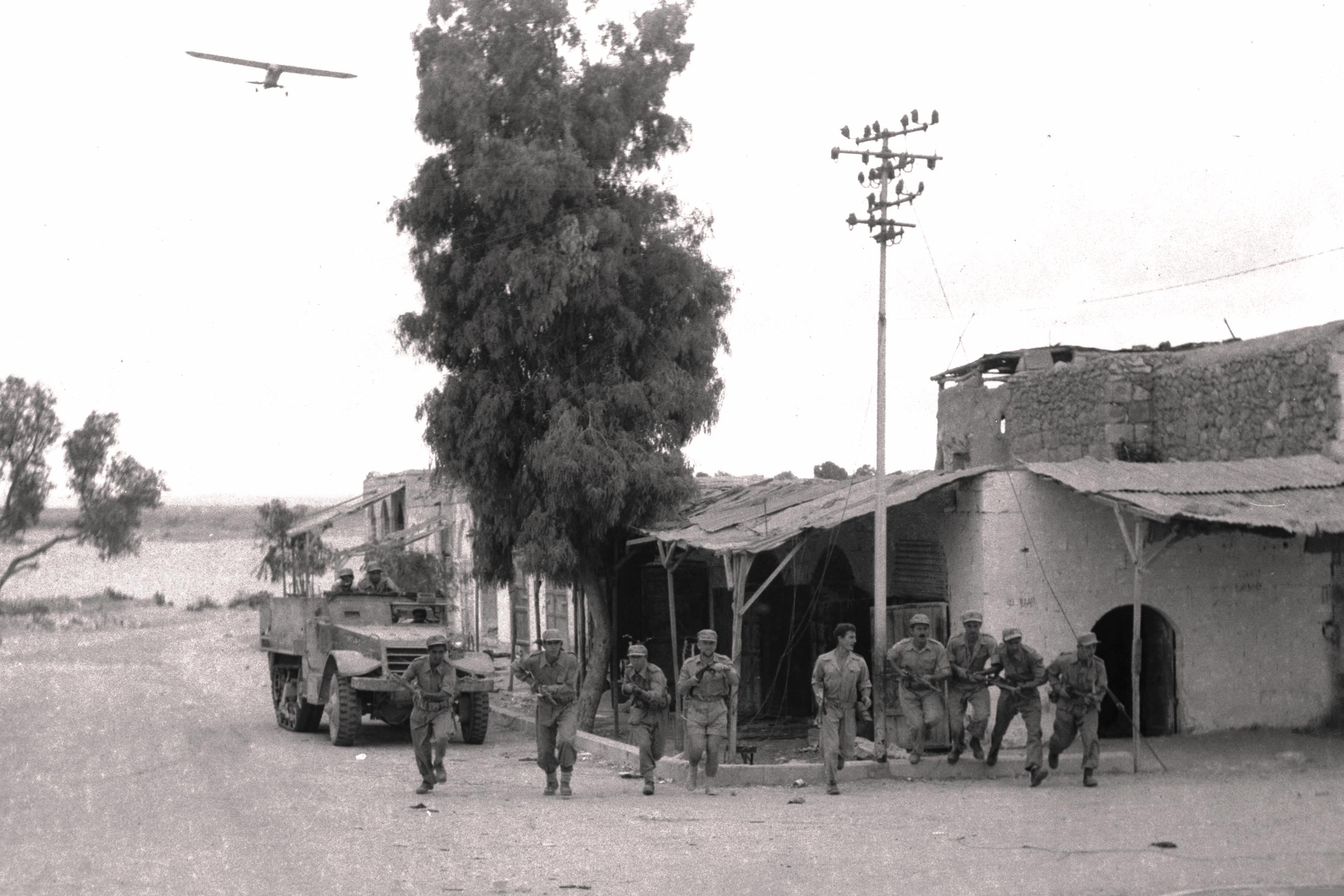|
Gal On
Gal On ( he, גַּלְאוֹן, גל און, lit. ''Wave of Strength'') is a kibbutz in southern Israel. Located in the Shephelah, it falls under the jurisdiction of Yoav Regional Council. In it had a population of . The kibbutz is associated with the Hashomer Hatzair movement and its Kibbutz Artzi settlement organisation (now part of the Kibbutz Movement). Established as part of the 1946 11 points in the Negev settlement drive, it is located approximately ten kilometers north east of Kiryat Gat and two kilometers east of Beit Guvrin. The kibbutz is administered as part of the Yoav Regional Council. Environs Gal On stands on a hill approximately twenty kilometers from the Mediterranean Sea. The hill on which it is located borders the Guvrin stream, an auxiliary of Lachish River. With average rainfall and temperate weather, Gal On’s Mediterranean climate facilitates agricultural production. History The core group, or ''gar'in'', that would eventually found the kibb ... [...More Info...] [...Related Items...] OR: [Wikipedia] [Google] [Baidu] |
History Of Jews In Poland
The history of the Jews in Poland dates back at least 1,000 years. For centuries, Poland was home to the largest and most significant Ashkenazi Jewish community in the world. Poland was a principal center of Jewish culture, because of the long period of statutory toleration, religious tolerance and Qahal, social autonomy which ended after the Partitions of Poland in the 18th century. During World War II there was a nearly complete genocide, genocidal destruction of the Polish Jewish community by Nazi Germany and its collaborators of various nationalities, during the German occupation of Poland between 1939 and 1945, called the Holocaust. Since the fall of communism in Poland, there has been a renewed interest in Jewish culture, featuring an annual Jewish Culture Festival, new study programs at Polish secondary schools and universities, and the opening of Warsaw's Museum of the History of Polish Jews. From the founding of the Kingdom of Poland (1025–1385), Kingdom of Poland i ... [...More Info...] [...Related Items...] OR: [Wikipedia] [Google] [Baidu] |
Haifa
Haifa ( he, חֵיפָה ' ; ar, حَيْفَا ') is the third-largest city in Israel—after Jerusalem and Tel Aviv—with a population of in . The city of Haifa forms part of the Haifa metropolitan area, the third-most populous metropolitan area in Israel. It is home to the Baháʼí Faith's Baháʼí World Centre, and is a UNESCO World Heritage Site and a destination for Baháʼí pilgrimage. Built on the slopes of Mount Carmel, the settlement has a history spanning more than 3,000 years. The earliest known settlement in the vicinity was Tell Abu Hawam, a small port city established in the Late Bronze Age (14th century BCE). Encyclopedia Judaica, ''Haifa'', Keter Publishing, Jerusalem, 1972, vol. 7, pp. 1134–1139 In the 3rd century CE, Haifa was known as a dye-making center. Over the millennia, the Haifa area has changed hands: being conquered and ruled by the Canaanites, Israelites, Phoenicians, Assyrians, Babylonians, Persians, Hasmoneans, Romans, Byzant ... [...More Info...] [...Related Items...] OR: [Wikipedia] [Google] [Baidu] |
Beit Jibrin
Bayt Jibrin or Beit Jibrin ( ar, بيت جبرين; he, בית גוברין, translit=Beit Gubrin) was a Palestinian village located northwest of the city of Hebron. The village had a total land area of 56,185 dunams or , of which were built-up while the rest remained farmland.''Village Statistics'', Government of Palestine. 1945. Quoted in Hadawi, 1970, p143 During the 8th century BCE, the village, then known as Maresha, was part of the Kingdom of Judah. During the days of Herod the Great, a Jewish ruler of the Herodian Kingdom, the town was the administrative center for the district of Idumea. After the turmoil of the First Jewish–Roman War and the Bar Kokhba revolt, the town became a thriving Roman colony and a major administrative centre of the Roman Empire under the name of Eleutheropolis. With the rise of Islam in the early 7th century CE, Bayt Jibrin was conquered by Arab forces led by ʽAmr ibn al-ʽAs under the Rashidun Caliphate. Under the Crusaders in t ... [...More Info...] [...Related Items...] OR: [Wikipedia] [Google] [Baidu] |
Operation Yoav
Operation Yoav (also called ''Operation Ten Plagues'' or ''Operation Yo'av'') was an Israeli military operation carried out from 15–22 October 1948 in the Negev Desert, during the 1948 Arab–Israeli War. Its goal was to drive a wedge between the Egyptian forces along the coast and the Beersheba–Hebron–Jerusalem road, and ultimately to conquer the whole Negev. Operation Yoav was headed by the Southern Front commander Yigal Allon. The operation was named after Yitzhak Dubno, codenamed "Yoav" by his commanders in the Palmach. Dubno, a senior Palmach officer, was charged with planning and leading the defense of the kibbutzim Negba and Yad Mordechai. Dubno was killed in an air raid on Kibbutz Negba shortly after Egyptian forces began their offensive on Israel's southern front. Background In the central and northern parts of Palestine, the Israelis had managed to make substantial territorial gains before the second truce of the war went into effect. But the southern Negev Dese ... [...More Info...] [...Related Items...] OR: [Wikipedia] [Google] [Baidu] |
Israel Defense Forces
The Israel Defense Forces (IDF; he, צְבָא הַהֲגָנָה לְיִשְׂרָאֵל , ), alternatively referred to by the Hebrew-language acronym (), is the national military of the Israel, State of Israel. It consists of three service branches: the Israeli Ground Forces, the Israeli Air Force, and the Israeli Navy. It is the sole military wing of the Israeli security forces, Israeli security apparatus, and has no civilian jurisdiction within Israel. The IDF is headed by the Chief of the General Staff (Israel), Chief of the General Staff, who is subordinate to the Ministry of Defense (Israel), Israeli Defense Minister. On the orders of David Ben-Gurion, the IDF was formed on 26 May 1948 and began to operate as a Conscription in Israel, conscript military, drawing its initial recruits from the already-existing paramilitaries of the Yishuv—namely Haganah, the Irgun, and Lehi (militant group), Lehi. Since its formation shortly after the Israeli Declaration of Independen ... [...More Info...] [...Related Items...] OR: [Wikipedia] [Google] [Baidu] |
1948 Arab–Israeli War
The 1948 (or First) Arab–Israeli War was the second and final stage of the 1948 Palestine war. It formally began following the end of the British Mandate for Palestine at midnight on 14 May 1948; the Israeli Declaration of Independence had been issued earlier that day, and a military coalition of Arab states entered the territory of British Palestine in the morning of 15 May. The day after the 29 November 1947 adoption of the United Nations Partition Plan for Palestine – which planned to divide Palestine into an Arab state, a Jewish state, and the Special International Regime encompassing the cities of Jerusalem and Bethlehem – an ambush of two buses carrying Jews took place in an incident regarded as the first in the civil war which broke out after the UN decision. The violence had certain continuities with the past, the Fajja bus attack being a direct response to a Lehi massacre on 19 November of five members of an Arab family, suspected of being British infor ... [...More Info...] [...Related Items...] OR: [Wikipedia] [Google] [Baidu] |
Gal On Cows
Gal may refer to: People Surname * Gál, a Hungarian surname * Andreas Gal (born 1976), German programmer * Dani Gal (born 1975), Israeli video artist * Dean Gal (born 1995), Israeli footballer * Edward Gal (born 1970), Dutch dressage rider * Gedalia Gal (born 1933), Israeli farmer and former politician * Igor Gal (born 1983), Croatian footballer * Jenny Gal (born 1969), Dutch-Italian judoka * Lidia Gal, Israel chess master * Naomi Gal (born 1944), Israeli writer * Nora Gal (1912–1991), Soviet translator and literary critic * Riki Gal (born 1950), Israeli singer * Reuven Gal (born 1942), Israeli psychologist * Sandra Gal (born 1985), German LPGA golfer * Șandor Gal (born 1955), Romanian former ice hockey player * Sharon Gal (born 1974), Israeli journalist and politician * Shmuel Gal, Israeli mathematician and professor * Susan Gal (born 1949), American academic * Udi Gal (born 1979), Israeli Olympic sailor * Uziel Gal (1923–2002), German-born Israeli gun designer * Yehoshua ... [...More Info...] [...Related Items...] OR: [Wikipedia] [Google] [Baidu] |
Jewish National Fund
Jewish National Fund ( he, קֶרֶן קַיֶּימֶת לְיִשְׂרָאֵל, ''Keren Kayemet LeYisrael'', previously , ''Ha Fund HaLeumi'') was founded in 1901 to buy and develop land in Ottoman Syria (later Mandatory Palestine, and subsequently Israel and the Palestinian territories) for Jewish settlement. The JNF is a non-profit organization.Professor Alon Tal, The Mitrani Department of Desert Ecology, The Blaustein Institutes for Desert Research, Ben Gurion University of the Nege"NATIONAL REPORT OF ISRAEL, Years 2003-2005, TO THE UNITED NATIONS CONVENTION TO COMBAT DESERTIFICATION (UNCCD)"; State of Israel, July 2006 By 2007, it owned 13% of the total land in Israel. Since its inception, the JNF says it has planted over 240 million trees in Israel. It has also built 180 dams and reservoirs, developed of land and established more than 1,000 parks. In 2002, the JNF was awarded the Israel Prize for lifetime achievement and special contribution to society and the State of Is ... [...More Info...] [...Related Items...] OR: [Wikipedia] [Google] [Baidu] |
Keren Hayesod
Keren Hayesod – United Israel Appeal ( he, קרן היסוד, literally "The Foundation Fund") is an official fundraising organization for Israel with branches in 45 countries. Its work is carried out in accordance with the Keren haYesod Law-5716, passed by the Knesset in January 1956, granting the organization a unique fundraising status. It is a registered corporation of the State of Israel. One of Israel's three “National Institutions,” Keren Hayesod works in coordination with the Government of Israel and the Jewish Agency for Israel to further the national priorities of the State of Israel. History Pre-state era Keren Hayesod was established at the World Zionist Congress in London on July 7–24, 1920 to provide the Zionist movement with resources needed to establish a Jewish homeland in Palestine. It came in response to the Balfour Declaration of 1917, which stated that “his Majesty's government views with favour the establishment in Palestine of a national home ... [...More Info...] [...Related Items...] OR: [Wikipedia] [Google] [Baidu] |
Gat, Israel
Gat ( he, גַּת) is a kibbutz in southern Israel. Located near Kiryat Gat, it falls under the jurisdiction of Yoav Regional Council. In it had a population of . History Kibbutz Gat was founded in 1934 by Jewish immigrants from Poland, Yugoslavia and Austria. In 1949, after the inhabitants of the nearby Palestinian village of Iraq al-Manshiyya had been expelled, some of their lands were transferred to Kibbutz Gat. Primor, one of Israel's largest juice manufacturers, is operated by the kibbutz. Citramed, another company located in Kibbutz Gat, has developed a method to squeeze out the antibacterial properties in the rind of citrus fruit for use as a natural preservative in health products and the food industry. Ministr ... [...More Info...] [...Related Items...] OR: [Wikipedia] [Google] [Baidu] |
Yom Kippur
Yom Kippur (; he, יוֹם כִּפּוּר, , , ) is the holiest day in Judaism and Samaritanism. It occurs annually on the 10th of Tishrei, the first month of the Hebrew calendar. Primarily centered on atonement and repentance, the day's observances consist of full fasting and ascetic behavior accompanied by intensive prayer as well as sin confessions (traditionally inside of a synagogue). Alongside the related holiday of Rosh HaShanah, Yom Kippur is one of the two components of the " High Holy Days" of Judaism. Etymology () means "day" in Hebrew and () is translated to "atonement". The common English translation of Yom Kippur is Day of Atonement; however, this translation lacks precision. The name Yom Kippur is based on the Torah verse, "...but on the 10th day of the seventh month it is the day of ''kippurim'' unto you..." The literal translation of ''kippurim'' is cleansing. Yom Kippur is a Jewish day to atone for misdeeds and become cleansed and purified from ... [...More Info...] [...Related Items...] OR: [Wikipedia] [Google] [Baidu] |





